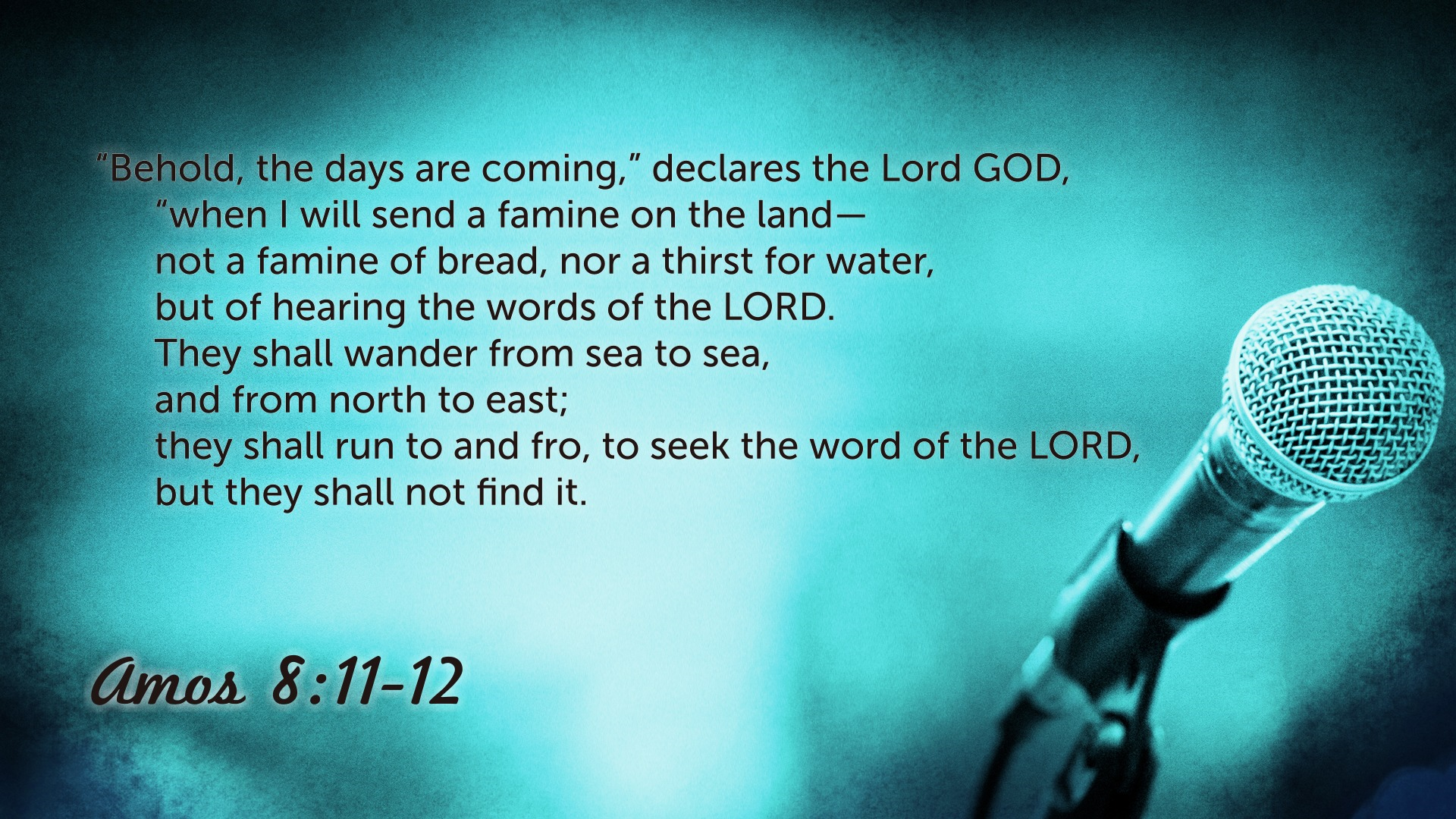God's Love in Holiness
“No truth today seems more self-evident in our culture than the fact that God is love. But this is not understood in its biblical setting where John immediately defines the nature of this love by saying that Christ was sent “to be the propitiation for our sins” (I Jn. 4:10). Our world today is relentlessly therapeutic whereas God’s is relentlessly moral. In our culture, people think that God is love because he is supposed to be there for them. If he is love, then it is his role to make them feel better about themselves. And if he is love, then he will give them stuff. Maybe a big lottery win.
By contrast, the Bible says God is love because he provided in the Son what his holiness demanded, a propitiation. But this is a jarring and unwelcome intrusion as far as our culture is concerned. It wants God’s love without his holiness. It wants acceptance without atonement, blessing without repentance, God’s therapeutic benefits without the gospel. This, though, is something no one can ever have. And that needs to be heard in the Church, not in muffled ways, but with clarity and forthrightness.
One of our deepest satisfactions in life, in fact, is to live in the light of the truth that God is both holy and loving. This takes us into the heart of reality. When we are there, we start to think about life in ways that are consistent with who God is. And knowing God’s holy-love is what puts steel into our spines and fire into our hearts. Today, the Church is in need of reform because, too often, it has lost this vision of God.”
David Wells, in Semper Reformanda: Why the Reformation Still Matters, Copyright 2014 Alliance of Confessing Evangelicals Inc, 600 Eden Road, Lancaster, PA 17601 USA.
God’s Love in Holiness
“No truth today seems more self-evident in our culture than the fact that God is love. But this is not understood in its biblical setting where John immediately defines the nature of this love by saying that Christ was sent “to be the propitiation for our sins” (I Jn. 4:10). Our world today is relentlessly therapeutic whereas God’s is relentlessly moral. In our culture, people think that God is love because he is supposed to be there for them. If he is love, then it is his role to make them feel better about themselves. And if he is love, then he will give them stuff. Maybe a big lottery win.
By contrast, the Bible says God is love because he provided in the Son what his holiness demanded, a propitiation. But this is a jarring and unwelcome intrusion as far as our culture is concerned. It wants God’s love without his holiness. It wants acceptance without atonement, blessing without repentance, God’s therapeutic benefits without the gospel. This, though, is something no one can ever have. And that needs to be heard in the Church, not in muffled ways, but with clarity and forthrightness.
One of our deepest satisfactions in life, in fact, is to live in the light of the truth that God is both holy and loving. This takes us into the heart of reality. When we are there, we start to think about life in ways that are consistent with who God is. And knowing God’s holy-love is what puts steel into our spines and fire into our hearts. Today, the Church is in need of reform because, too often, it has lost this vision of God.”
David Wells, in Semper Reformanda: Why the Reformation Still Matters, Copyright 2014 Alliance of Confessing Evangelicals Inc, 600 Eden Road, Lancaster, PA 17601 USA.


